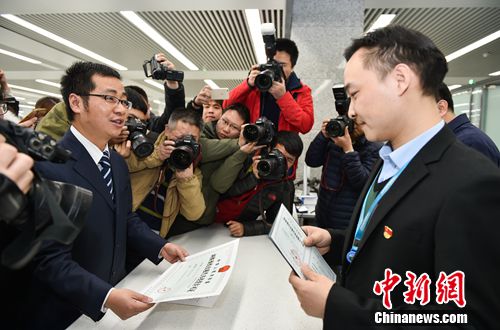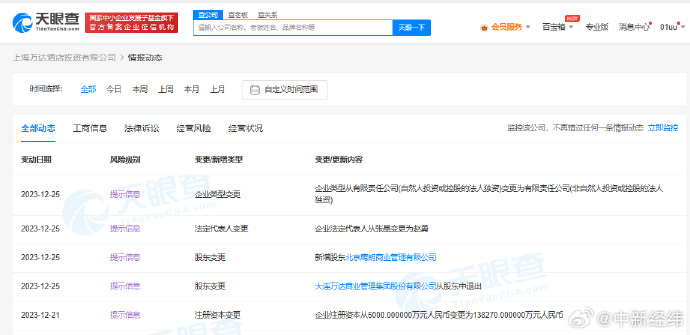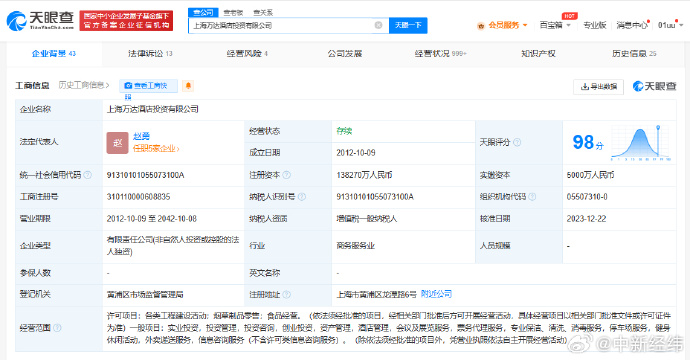The big news worth watching this evening are:
1. The Supreme Leader met with Russian President Vladimir Putin.
2. The good news is coming! The General Office of the State Council issued a document related to the reduction of fees for securities, funds, etc.;
3. The RMB exchange rate has broken "7"! What are the implications? How will the future trend go?
4. The United States will ban Chinese batteries after 2024? BYD board secretary: It is impossible for the electric vehicle industry to decouple.
5. Peripheral interest rate hikes are expected to be further strengthened, and fund managers may accelerate the transfer of positions and shares.
The following is the text of the evening report:

1. The Supreme Leader meets with Russian President Vladimir Putin
Importance: ★ ★ ★ ★ ★
On the afternoon of the 15th local time, the Supreme Leader of the President of the People’s Republic of China held a bilateral meeting with Russian President Vladimir Putin at the Samarkand State Guesthouse, conferring on Sino-Russian relations and international and regional issues of common concern.
The Supreme Leader stressed that China is willing to strongly support each other on issues concerning each other’s core interests and deepen practical cooperation in trade, agriculture, connectivity and other fields. The two sides should strengthen coordination and cooperation within multilateral frameworks such as the Shanghai Cooperation Organization, CICA, and BRICS countries, and promote all parties to enhance unity and mutual trust, expand practical cooperation, safeguard regional security interests, and safeguard the common interests of developing countries and emerging market countries.
2. The good news is coming! The General Office of the State Council issued a document related to the reduction of securities, funds, etc
Importance: ★ ★ ★ ★
On September 15, the General Office of the State Council issued the Opinions on Further Optimizing the Business Environment and Reducing the Institutional Transaction Costs of Market Entities, including 23 items in five aspects. The key contents are as follows:
Fully implement market access negative list management
Encourage securities, funds, guarantees and other institutions to further reduce service charges
Improve the intellectual property protection system for new fields and new formats such as big data, artificial intelligence, and genetic technology
Fully implement fair competition censorship and investigate and punish malicious subsidies, low-price dumping, setting unreasonable trading conditions, etc
Promote the reduction of logistics service charges
For more details, please click to view the full text.
3. The RMB exchange rate has broken "7"! Which sectors are expected to benefit? How will the future trend go?
Importance: ★ ★ ★ ★
On September 15, Beijing time, after more than two years, the exchange rate of the RMB against the US dollar once again entered the "7" era. What is the impact? How will it go in the future? The comprehensive official and expert authoritative views of the country are as follows:
On the sector: Huaxi Securities believes that the greater the proportion of overseas business income, the greater the degree of impact of exchange rate fluctuations. However, there are differences in the elasticity of exchange rate effects in different industries. Technology-intensive industries such as electronics, household appliances, automobiles, and medical apparatus benefit more than labor-intensive industries such as textiles and clothing.
Exports: China’s export trade in shoes and accessories, textiles and apparel, leather bags account for a large share, and a moderate depreciation of the RMB may benefit companies in these industries.
On imports: In turn, industries that need to import raw materials, goods, and services from overseas, as well as companies that carry more dollar bonds, may be negatively affected.
On prices: China’s CPI constitutes the vast majority of food, and the country can be self-sufficient. The depreciation of the RMB against the US dollar has little impact on prices.
Follow-up trend: The RMB exchange rate does not have the basis for long-term depreciation. Even if it breaks the "7" this time, it will be inevitable to rise back to the "6" range in the future as the domestic economy stabilizes and the US dollar index pulls back with the use of some tools.
More relevant interpretations can be found here.
The United States will ban Chinese batteries after 2024? BYD board secretary: It is impossible for the electric vehicle industry to decouple
Importance: ★ ★ ★
Recently, a screenshot was posted on the Internet, claiming that the US IRA Act requires that Chinese batteries be banned after 2024.
In this regard, BYD board secretary Li Qian wrote on WeChat Moments on the afternoon of the 15th, "I don’t see how the electric vehicle industry is decoupled? In the electric vehicle industry, the United States is still in the early stage, relying on increased subsidies to support, while China has completely shifted from policy-driven to market-driven."
The new team of Tianfeng Securities also issued a document saying that the IRA bill only says that starting from 2024, any country whose battery components are produced in the list of "countries of special concern" (China is included) will no longer apply subsidies, and there is no ban.
5. Policies are frequent in various places, and there are multiple leading stocks connected to the board. Will real estate become the main line in the next stage?
Importance: ★ ★ ★
Recently, real estate stocks have also ushered in multiple catalysts in policies, and many cities have relaxed policies. In just two days on the 14th and 15th, there were major moves in Zhengzhou, Guangzhou, Suzhou, and Qingdao. For details, click here.
In the real estate sector, Zhongzhou Holdings 4 days 3 board, Shahe shares 2 board, Xinhualian 2 board.
Comments: Recently, the new energy track has fallen sharply, and low-valued sectors such as finance and real estate have risen against the trend. Will real estate become the main line in the next stage? CITIC Securities believes that the policy will be implemented in a gradual and cumulative manner. The supply-side changes under the credit crisis have brought significant opportunities to some blue-chip real estate companies.
6. Peripheral interest rate hikes are expected to be further strengthened, and fund managers may accelerate their position-shifting and stock-swapping. The style will change.
Importance: ★ ★ ★
On September 15, class A shares adjusted again. Due to the increased volatility in the global market and the increased demand for institutional funds to avoid risks, some fund companies emphasized that there may be a need to switch positions in funds. According to brokerage China, fund managers may lay out oversold sectors.
Comments: What happened to the fund group stocks in those years? Just look at the chart below. In other words, the allocation ratio of partial stock public funds to new energy has reached an astonishing 40%, which can be said to be very high!

7. The mass production of Hengchi 5 is imminent, and Hengda Automobile’s Tianjin factory will hold a mass production ceremony on September 16
Importance: ★ ★ ★
Hengda Motor’s Tianjin factory will hold a mass production ceremony of Hengchi 5 on September 16. At present, Hengda Motor President Liu Yongzhuo and other executives have gone to the Tianjin factory site, and the site of the event ceremony has been preliminarily completed.
In addition, the following news is also worth noting:
8. MIIT: There is blind investment and duplicate construction in the field of new energy vehicles, but it will be gradually digested and solved.
9. China Securities Association: More than 60% of chief economists believe that the year-on-year growth rate of GDP in the fourth quarter will increase slightly compared with the third quarter.
National Energy Administration: China’s electricity consumption 852 billion kWh in August, an increase of 10.7% year-on-year.

1. U.S. stocks opened slightly lower: Some popular Chinese stocks fell, and Adobe fell more than 13%.
The three major U.S. stock indexes collectively opened lower, with the Dow down 0.08%, the Nasdaq down 0.69%, and the S & P 500 down 0.35%. Some popular Chinese stocks fell, Kingsoft Cloud, Bilibili, and XPeng Motors fell more than 3%, and iQIYI and Qutoutiao fell more than 2%.
Adobe tumbled more than 13% to its lowest level since late April 2020, after announcing the acquisition of Figma and providing Q4 financial guidance. Netflix rose 3.3% and expects the low-cost subscription service to reach 40 million audience by the third quarter of 2023.
The Chinese concept demon stock is still multiplied by the number of stocks initially rose by more than 56%, triggering a suspension, and the stock skyrocketed by more than 311% overnight.
Apple became Wall Street’s number one short target: short positions reached $18.40 billion, surpassing Tesla for the first time in more than two years
Wall Street bears are eyeing large technology stocks in the United States. According to financial analysis firm S3
Partners released data on September 14 local time. As of September 13, Apple’s latest unpositioned squaring short position was $18.444 billion, surpassing Tesla for the first time since the COVID-19 pandemic outbreak overseas in April 2020. It has become the number one short target for Wall Street bears.
3. Last-minute thrilling clearance, the first rail strike in the United States in 30 years was averted
After more than 20 hours of all-night negotiations, at 5:05 a.m. the day before the deadline, the White House announced that Amtrak and the unions had reached a "thrilling" tentative agreement, averting the first rail strike in 30 years.

After combing through the investment opportunities that the market is concerned about, we found that degradable plastics, VR, etc. are attracting attention.
MIIT strengthened the application of low-carbon materials such as degradable plastics, and institutions favored these 13 stocks during the year
The MIIT General Office and others have issued the "three products" implementation plan for the raw material industry to develop green and low-carbon products. It is mentioned that the research and development and application of high-quality green and low-carbon materials such as degradable plastics and bio-based materials should be strengthened.
Guohai Securities Research Report pointed out that under the promotion of the plastic ban policy, it is predicted that by 2025, the total market demand for degradable plastics in China will reach 4.1523 million tons, which is 9.23 times the demand in 2018, and the unit price 20,000 yuan/ton is 83 billion.
Tencent’s self-selected stocks found that this year, there are 13 shares of Jinfang Technology that have received more than 10 institutional researchers, including Wanhua Chemical, Yutong Technology, and Hengli Petrochemical, which are 113, 50, and 42 respectively.

2. The PICO 4VR all-in-one machine will be officially launched at the end of the month, and the industrial chain is expected to attract attention
According to media reports, according to the PICO Tmall flagship store, Pico
The 4VR all-in-one machine has been officially opened for pre-order and is expected to be officially launched at the end of this month. The final price will be announced on September 27. Users can book at a price of 100 yuan between September 13 and 22:00 on September 27, and pay the balance at 22:30 on September 27.
The industry believes that the VR all-in-one machine with independent computing power, independent interaction, independent display and independent content platform in our country has become the current mainstream virtual reality (VR) end point device. According to the data released by IDC, the shipment of VR headsets in Quarter 1 of 2022 in China was 257,000 units.
Class A shares in the company:
Zhidu Co., Ltd., a holding subsidiary of Guangzhou Zhidu Cosmos Technology Co., Ltd., launched the first domestic digital art meta-universe community "Meta Beyond", which is currently available in PICO.
VR, iQIYI · Adventure VR and Android mobile terminals are launched. (Recommended by AVIC Plaza Securities)
Changxin Technology: Provides the latest VR Quest2 display module for Meta, and also provides VR headset module for domestic VR giant PICO. (Recommended by Huaxin Securities)
In addition, the following sectors are also worth paying attention to:
3. Huawei Cloud: It will support 10,000 startups worldwide in the next three years.
4. Hengqin launches the pilot of intelligent networked driverless cars.
5, iPhone 14 series of mobile phones have not been sold and the price has increased: the spot premium is 200-4000 yuan, and the most expensive one is priced at 17,000 yuan;
6. MIIT: It is organizing research to promote the application of eSIM technology on smartphones and other devices.

On the positive side, the self-selected brother prompts attention to the signing of a cooperation framework agreement between Huayi Technology and a subsidiary of Ningde Times, etc.; on the negative side, attention is paid to the suspension of the formal cooperation agreement between Zhezhong Shares and Mount Everest in Tibet and Qidi Qingyuan.
positive announcement
1. Hikvision: 2 billion yuan – 2.50 billion yuan to buy back shares, and the repurchase price does not exceed 40 yuan/share.
2. Huayi Technology: Signed a cooperation framework agreement with Ningde Times (Shanghai).
3. Xingshuaier: The subsidiary signed the "General Rules for Procurement of Productive Materials" with Shenzhen BYD Supply Chain Management Co., Ltd.
4. Funeng shares: increase the price of on-grid electricity and natural gas gate stations.
5. Xinwangda: It is planned to build a 30GWh power battery production base 12 billion.
6. Kelun Pharmaceutical: Net profit is expected to increase by 55% to 70% year-on-year in the first three quarters.
7, China Railway: won the bidding of 38 major projects, a total of 91.20 billion yuan.
Negative announcement
1. Zhezhong Shares: The company has suspended the agreement on the formal cooperation agreement with Mount Everest in Tibet and Qidi Qingyuan.
2. Two-board Xinhualian: The company’s business does not involve the concept of Universal Studios.
3. ST Zotye released a stock price change announcement: the relevant cooperation is currently only for the transformation of the original production line, and no new pure electric vehicle production capacity construction projects will be carried out and no new production capacity will be added.
4. Ordinary people: The pharmaceutical group plans to reduce its holdings by no more than 2%.
5. Kid King: Nanjing Weiying plans to reduce its holdings by no more than 1%.
6. Heat Scene Bio: The company’s former supervisor received a written administrative penalty decision.
This article is selected from "Tencent’s self-selected stocks", edited by Zhitong Finance: Wei Haoming.














